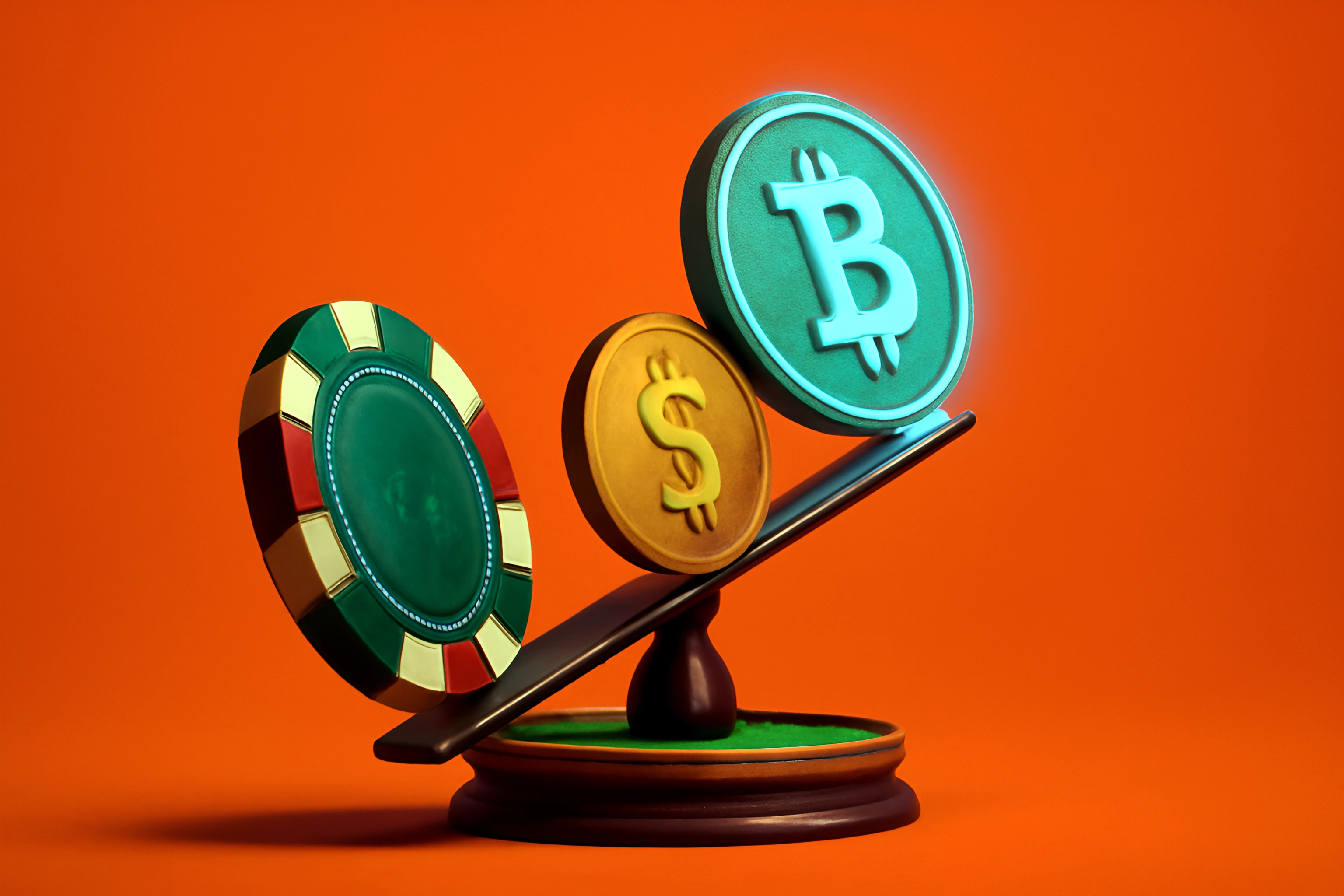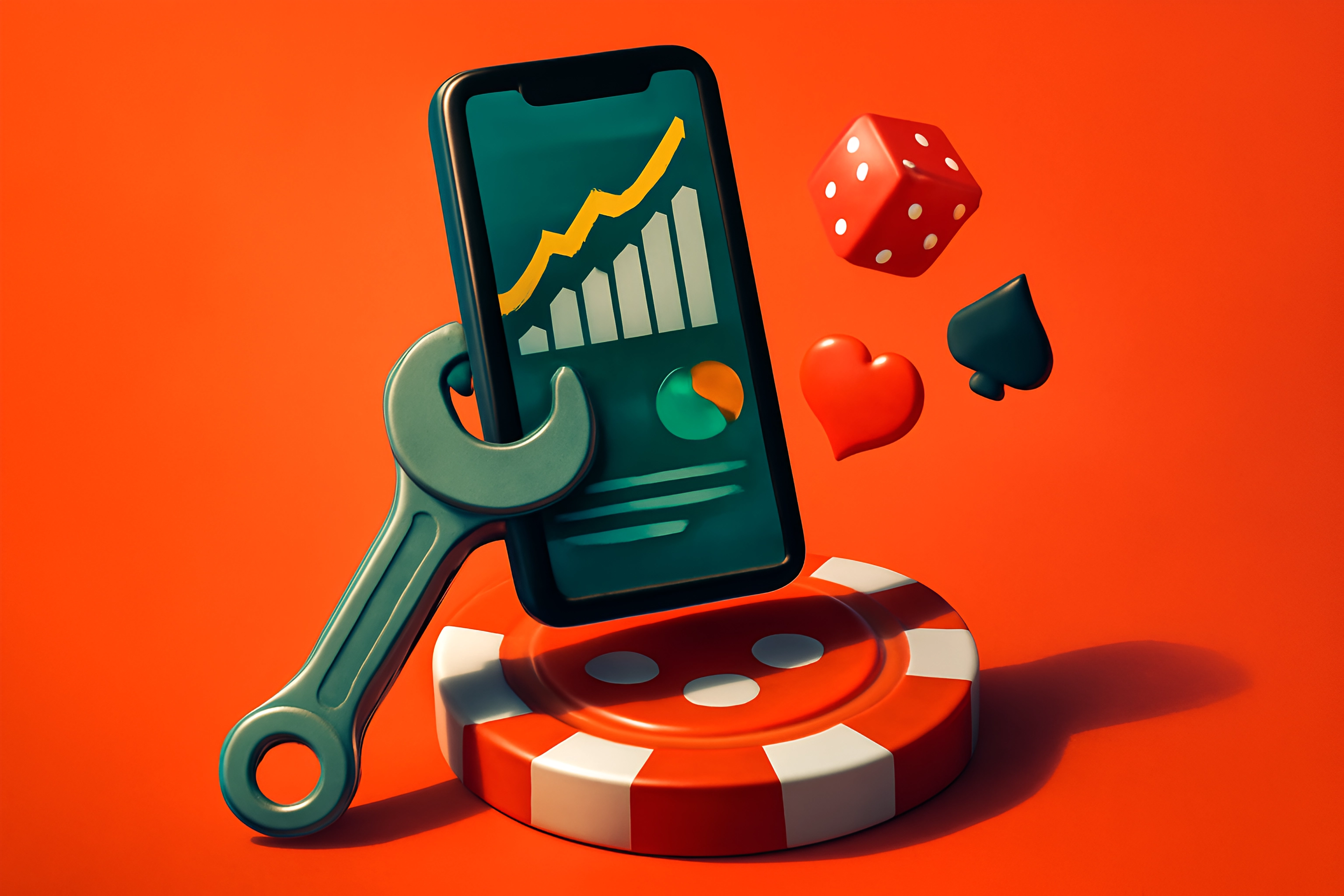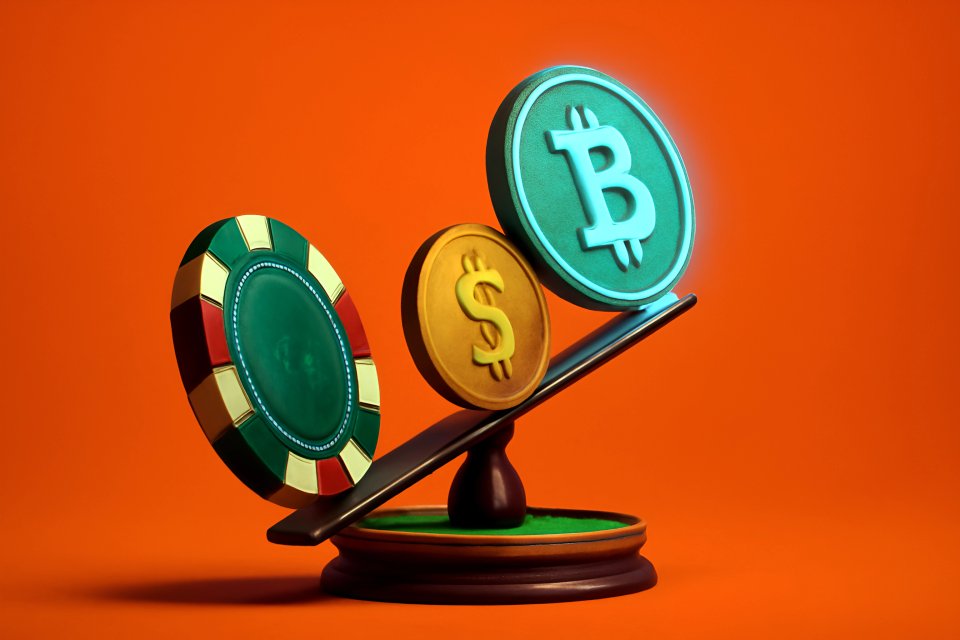
The world of online gaming is a whirlwind, constantly shifting and evolving at a breakneck pace. Gone are the days of clunky, basic platforms; today, we're immersed in a sophisticated, multi-billion-dollar industry, a testament to the relentless march of internet technology and innovative payment systems, a journey well documented in the history of technological advancements. For years, traditional online casinos have been the bedrock of this digital entertainment, the familiar faces offering games of chance with currencies we know and trust.
But hold onto your hats, because a new challenger has entered the arena, sparking excitement and intrigue: crypto casinos, powered by the revolutionary force of decentralization. These platforms are not just a fleeting trend; they represent a fundamental shift, a new frontier in how we experience online gaming, promising a future built on transparency and player empowerment. This post is your guide, designed to cut through the noise and offer a clear, comprehensive look at comparing crypto casinos vs traditional casinos, helping you understand the crucial differences, the dazzling pros, and the potential cons.
While both traditional and crypto casinos aim to deliver thrilling entertainment, the rise of decentralized platforms introduces a unique set of advantages and challenges. These differences touch everything from the security of your funds and data, often governed by complex rules around regulatory compliance and data security in online gambling, to the very nature of financial transactions and the types of games you can play. Understanding this new landscape, including how crypto payments benefit iGaming or how digital currencies are managed, is key to making an informed choice that truly suits your gaming desires and your need for security and control.
Understanding the Contenders: Defining the Playing Field
To truly grasp the differences, let's first clearly define our players. What makes a traditional casino tick, and what’s the magic behind a crypto casino? Knowing the fundamentals is your first step to choosing wisely.
What is a Traditional Online Casino?
Think of traditional online casinos as the established veterans of the digital gambling world. These platforms operate using familiar fiat currencies – your dollars, euros, and pounds – processed through conventional channels like banks, credit cards, and popular e-wallets. Their entire operation, from game servers to player databases, is centralized, meaning it's controlled and managed from a central point.
This centralized structure means they rely heavily on established payment processors, which, while familiar, can sometimes introduce delays or fees. Furthermore, traditional online casinos are typically governed by well-known regulatory bodies, such as the Malta Gaming Authority (MGA) or the UK Gambling Commission (UKGC). These licenses provide a framework for operation, aiming to ensure fair play and player protection, though they also necessitate processes like identity verification, often referred to as KYC (Know Your Customer) protocols.
The games you find here are often from industry giants like Microgaming and Evolution Gaming, offering a vast selection of slots, table games, and live dealer experiences that many players have come to know and love. This established ecosystem provides a sense of familiarity and, for many, a trusted environment for online entertainment. For instance, many players in regions like the United States navigate a complex web of state-level online gambling regulations when interacting with these platforms.
What is a Crypto Casino?
Now, picture the new kid on the block, brimming with technological innovation: the crypto casino. These platforms primarily dance to the rhythm of cryptocurrencies, utilizing digital assets like Bitcoin, Ethereum, and Litecoin for all financial transactions, from depositing funds to placing wagers and cashing out winnings. This reliance on digital currencies is a defining feature, setting them apart from their traditional counterparts.
Many crypto casinos are built upon, or heavily leverage, decentralized platforms, harnessing the power of blockchain technology. This can translate to a greater degree of anonymity or pseudo-anonymity for players, as extensive personal details might not always be required to get started, a core aspect of how crypto casinos operate. One of the most significant advantages touted by these platforms is the speed of transactions; deposits and withdrawals can often be processed much faster than traditional methods.
A standout feature often found in crypto casinos is "Provably Fair" gaming technology. This ingenious system, sometimes touched upon in discussions about MGA licensing processes due to its implications for fairness, allows players to independently verify the fairness of game outcomes, fostering a level of transparency rarely seen in traditional setups. While the promise of enhanced privacy and speed is alluring, it's also true that the regulatory landscape for crypto casinos can be less defined, and players must be mindful of the inherent volatility of cryptocurrencies, such as the fluctuations in Bitcoin transaction fees.
The Concept of Decentralization in Online Gambling
So, what exactly is this decentralization we keep mentioning, and why does it matter in the world of online gambling? At its core, decentralization means there's no single, central authority or point of control; instead, power and data are distributed across a network. This is made possible by blockchain technology, which acts as a transparent and immutable digital ledger, recording transactions and game outcomes in a way that's incredibly difficult to tamper with.
The implications for online gambling are profound. Imagine a casino where fairness isn't just promised but is mathematically verifiable by anyone – that's a key benefit. This transparency can significantly enhance player trust. Furthermore, decentralization can lead to reduced censorship, as no single entity can unilaterally shut down operations or unfairly target players.
Perhaps one of the most empowering aspects is the potential for greater player data control. In a truly decentralized system, you might have more say over how your personal information is stored and used, moving away from large, centralized databases that can be vulnerable. As highlighted by insights into how decentralized casinos are revolutionizing online gambling, this shift towards player empowerment and transparent operations is a game-changer.
Head-to-Head Comparison: Crypto Casinos vs. Traditional Casinos
Now for the main event! Let's pit these two contenders against each other, examining the critical factors that matter most to you, the player. Get ready for a no-holds-barred look at how they stack up.
Security and Anonymity
When you step into a traditional online casino, expect to go through a Know Your Customer (KYC) process. This means providing personal identification documents, a step mandated by regulators to prevent fraud and money laundering, as detailed in explanations of KYC requirements in the UK. While this system is designed for accountability and player protection, it inherently means your sensitive personal data is stored in centralized databases.
These centralized databases, unfortunately, can become targets for hackers. A data breach at a traditional casino could expose a wealth of personal and financial information, a significant concern for players prioritizing privacy. Regulatory compliance and data security in online gambling are major focuses for these platforms, but the risk associated with central data storage remains a stark reality.
Crypto casinos often present a different approach, frequently allowing for a greater degree of anonymity or pseudo-anonymity. Because transactions are conducted with cryptocurrencies and recorded on a public (yet often anonymized) blockchain, you might not need to provide extensive personal details to play, as explained in guides on how crypto casinos work. However, this doesn't mean they are without risks; the security of your crypto funds largely depends on your own practices, such as securing your crypto wallet and being vigilant against phishing scams, a crucial aspect of managing crypto assets securely.
Payments: Deposits, Withdrawals, and Fees
Traditional online casinos operate with the fiat currencies we use every day, like dollars and euros. However, moving this money around can sometimes feel like navigating an obstacle course. Deposits might be quick, but withdrawals often come with processing times that can stretch from 1 to 5 business days, especially for international transactions, and players often face geographic restrictions or payment hurdles.
Furthermore, these conventional payment methods can attract fees, sometimes a percentage of your transaction (e.g., 3-5%), levied either by the casino or the payment processor itself. These costs can eat into your winnings or add to your deposits, an unwelcome surprise for many. The entire process is subject to banking hours and the operational protocols of third-party financial institutions, which can feel restrictive in our always-on world.
Crypto casinos, on the other hand, promise a revolution in payment efficiency. Transactions using cryptocurrencies like Bitcoin or Ethereum can be incredibly fast, with deposits often confirmed within minutes, and withdrawals processed much quicker than traditional bank transfers, as highlighted by the top benefits of crypto payments for iGaming. Transaction fees are also typically lower, often ranging from negligible amounts to a few dollars depending on network congestion – a stark contrast to some fiat methods, though it's wise to keep an eye on variable costs like Bitcoin transaction fees. The global accessibility of crypto also means fewer geographical restrictions, but players must contend with the notorious price volatility of cryptocurrencies, which can impact the real-world value of their bankroll and winnings.
Bonuses and Promotions
Who doesn't love a good bonus? Traditional online casinos are famous for their welcome packages, free spins, reload bonuses, and loyalty programs, all designed to attract and retain players. These promotions are typically tied to fiat values and come with standard wagering requirements, which you can often find detailed on sites like AskGamblers' casino bonus pages.
These bonuses can certainly boost your initial bankroll and extend your playtime, offering tangible value. However, the terms and conditions can sometimes be complex, with wagering requirements that might feel steep before you can cash out any winnings derived from bonus funds. It's always crucial to read the fine print to understand exactly what's on offer.
Crypto casinos often take bonuses to a whole new level, frequently offering larger or more unique incentives. You might find crypto-specific deposit matches that dwarf traditional offers, innovative "faucets" that drip small amounts of free crypto, or generous rakeback deals that return a percentage of your wagers, as explored by resources like Blockonomi's guide to Bitcoin cashback casinos. The ability to wager directly in crypto and the potential for innovative reward systems, perhaps even tied to tokenomics, make for an exciting promotional landscape. Because crypto casinos can sometimes operate with lower overheads (e.g., fewer payment processing fees), they may pass these savings onto players in the form of more generous bonuses.
Game Selection and Innovation
Variety is the spice of life, and that's certainly true for casino games! Traditional online casinos boast vast libraries, often featuring thousands of titles from established software providers like the renowned Microgaming and the live casino giants, Evolution Gaming. You'll find all the familiar slots, classic table games like blackjack and roulette, and immersive live dealer options that bring the casino floor to your screen.
This sheer volume and the presence of well-known game developers provide a sense of trust and quality. Players can enjoy games with proven track records, sophisticated graphics, and engaging gameplay mechanics. The live dealer offerings from companies like Evolution Gaming, detailed on PokerNews, are particularly popular for their realism and interactive features.
Crypto casinos are rapidly catching up in terms of game selection, with many now offering a growing range of titles, including those from major providers who are embracing the crypto space. What truly sets them apart, however, is the innovation in gaming, particularly with "Provably Fair" games like Dice and Crash, which allow players to verify the fairness of each round. There's also exciting potential for entirely new game mechanics powered by blockchain technology and even the integration of NFTs (Non-Fungible Tokens) for unique in-game assets or rewards.
Regulation and Licensing
Navigating the regulatory waters is crucial for peace of mind. Traditional online casinos typically operate under well-defined licensing bodies, such as the Malta Gaming Authority (MGA), the UK Gambling Commission (UKGC), or for some, Curacao eGaming. These licenses come with established player protection measures, dispute resolution processes, and requirements for responsible gambling.
This regulatory framework provides a safety net for players. If issues arise, there are generally clear channels for recourse, and casinos are held accountable for fair practices and security standards. The emphasis on regulatory compliance and data security in online gambling is a cornerstone of their operation.
Crypto casinos, however, often exist in more of a regulatory grey area. While some are licensed (commonly by authorities in Curacao), many operate without formal licensing, relying instead on the transparency of blockchain and community trust. This evolving regulatory landscape for decentralized casino platforms means players must exercise greater due diligence, carefully researching a platform's reputation and security measures before depositing funds. The lack of a universal regulatory standard is one of the primary distinctions when comparing crypto casinos vs traditional casinos.
User Experience and Accessibility
How easy is it to jump in and start playing? Traditional online casinos have had years to refine their user experience, generally offering polished, intuitive interfaces that are easy to navigate, even for complete beginners. They also tend to have well-established customer support channels, including live chat, email, and phone support, available 24/7.
This focus on user-friendliness makes traditional platforms highly accessible. Everything from signing up and making a deposit to finding your favorite games and cashing out winnings is designed to be as smooth as possible. The learning curve is typically very gentle.
The user experience at crypto casinos can vary more widely. Some boast incredibly modern, sleek designs that are a joy to use, while others might feel more basic or cater to a more tech-savvy audience. For those new to cryptocurrencies, there can be a learning curve associated with setting up a crypto wallet, purchasing digital currencies, and understanding transaction processes, as touched upon in guides about how crypto casinos work. However, for those already comfortable with crypto, these platforms can offer a seamless and integrated experience.
Emerging Trends: How Decentralization is Reshaping iGaming
The rise of crypto isn't just about different payment methods; it's about a fundamental shift powered by decentralization. Let's look at the exciting trends that are reshaping the very fabric of iGaming.
The Rise of Provably Fair Gaming
What if you could mathematically prove that every game you play is fair? That's the promise of Provably Fair gaming, a technology predominantly found in crypto casinos. It uses cryptographic algorithms to allow players to independently verify the randomness and fairness of game outcomes, ensuring that neither the player nor the casino can manipulate the results. This transparency, often discussed in the context of ensuring operational integrity similar to how MGA licensing applications scrutinize fairness, is a massive boost for player trust.
This system typically involves a server seed (from the casino), a client seed (from the player), and a cryptographic nonce. Before a game round, the casino commits to a hashed server seed. After the round, the player can use their client seed and the revealed server seed to recalculate the outcome, confirming its legitimacy. This open approach is a direct challenge to the "black box" nature of traditional Random Number Generators (RNGs).
The impact on player trust cannot be overstated. In an industry where trust is paramount, Provably Fair technology offers an unprecedented level of assurance. It empowers players, giving them the tools to confirm they're getting a fair shake, which is a powerful motivator for choosing crypto platforms.
Tokenization and NFTs in Casinos
Get ready for a new era of in-game assets and rewards! Tokenization, the process of representing assets as digital tokens on a blockchain, is opening up incredible possibilities. Imagine loyalty points that are actual tradable tokens, or unique in-game items, like a special skin for your avatar or a rare virtual collectible, represented as Non-Fungible Tokens (NFTs).
These NFTs could grant special access, unlock exclusive bonuses, or even represent a fractional share in a casino's success. Unlike traditional in-game items that are stuck within one platform, blockchain-based assets could potentially be traded on open marketplaces, giving them real-world value and utility beyond the casino itself. This concept is part of the broader revolution detailed in how decentralized casinos are leveraging blockchain.
This trend could transform loyalty programs from simple point systems into dynamic economies where players own truly unique and valuable digital assets. The potential for innovation here is vast, blurring the lines between gaming, investment, and collectibles. It’s a glimpse into a future where your engagement is rewarded with tangible, ownable value.
DAOs (Decentralized Autonomous Organizations)
What if the players themselves had a say in how a casino is run? That's the radical idea behind Decentralized Autonomous Organizations, or DAOs. A DAO is essentially an organization run by code and community consensus, where rules are embedded in smart contracts on a blockchain, and decisions are made through voting by token holders (often the players themselves).
Imagine a casino platform where the community votes on game additions, changes to the fee structure, or how platform profits are distributed. This offers a level of transparency and democratic governance previously unheard of in the gambling industry. It shifts power from a central authority to the collective, fostering a strong sense of community ownership and involvement.
While still an emerging concept in the iGaming space, DAOs represent a fascinating glimpse into a potential future where casinos are truly community-governed. The challenges are there – ensuring active participation, managing governance effectively – but the promise of a casino run by its users, for its users, is undeniably compelling. This is a core element of the decentralization movement in online gambling.
The Blurring Lines
The iGaming world isn't static; it's a dynamic ecosystem where ideas cross-pollinate. We're already seeing traditional casinos beginning to dip their toes into the crypto waters by accepting cryptocurrency payments alongside fiat. This hybrid approach allows them to cater to a wider audience and benefit from the speed and efficiency of crypto transactions.
Simultaneously, many crypto casinos are actively working to gain more mainstream appeal. This includes seeking licenses from reputable regulatory bodies, improving user interfaces to be more accessible to non-crypto natives, and partnering with established game developers. They understand that to grow, they need to build trust and familiarity.
This convergence suggests that the future of online gambling might not be an "either/or" scenario but rather a blend of the best of both worlds. Expect to see more platforms offering a wider range of payment options, more transparency features, and a continued push for innovation, all benefiting you, the player. The ongoing evolution means more choices and, hopefully, better and safer gaming experiences for everyone.
Pros and Cons: A Quick Summary
Let's boil it down. What are the key takeaways when you're weighing your options? Here’s a snapshot:
| Feature | Crypto Casinos | Traditional Casinos |
|---|---|---|
| Pros | Potential for greater anonymity, significantly faster & often cheaper transactions, access to innovative Provably Fair games, potentially larger or unique bonuses, enhanced transparency through blockchain. | Established trust & well-defined regulation, familiar and widely accepted payment methods, vast game selection from renowned providers, robust customer support. |
| Cons | Price volatility of cryptocurrencies, often uncertain or evolving regulatory status, a learning curve for users new to crypto, player bears more responsibility for wallet security. | Slower withdrawal times, mandatory KYC processes (less privacy), potential for higher transaction fees from payment providers, more centralized data control. |
This table gives you a quick reference, but remember the nuances we've discussed. Your personal priorities will determine which column holds more weight for you.
Which Type of Casino is Right for You?
So, after all this, the million-dollar question (or perhaps the Bitcoin question!): which path should you choose? The truth is, there's no single "best" answer. It all boils down to your individual priorities, your comfort level with technology, and what you value most in your online gaming experience.
Are you someone who prioritizes cutting-edge technology, values the potential for greater anonymity, and is excited by the prospect of faster, cheaper transactions using cryptocurrencies? If so, a crypto casino might be an exhilarating option for you. Are you willing to embrace a slight learning curve for these benefits?
On the other hand, do you prefer the reassurance of established regulation, the familiarity of traditional payment methods, and the comfort of knowing there are well-defined customer support channels and player protection measures in place? If this sounds more like you, then a traditional online casino might be a more comfortable fit. Consider how much you value the house edge and casino profitability models that underpin these established businesses.
Ultimately, assess your own risk tolerance and your willingness to engage with new technologies. And, crucially, no matter which type of platform you choose, always remember to gamble responsibly. Set limits, play for entertainment, and never wager more than you can afford to lose.
Conclusion: Navigating Your Casino Nest
We've journeyed through the vibrant, ever-evolving landscape of online casinos, comparing crypto casinos vs traditional casinos across the board. From security and payments to bonuses and the very games you play, the differences are clear, each offering a distinct flavor of excitement and engagement. Crypto casinos are undeniably pushing the boundaries with decentralization, offering tantalizing benefits in speed, anonymity, and innovation. Traditional casinos, meanwhile, stand firm on their foundations of established trust, comprehensive game libraries, and robust regulatory oversight.
At The Casino Nest, our mission is to arm you with the insights you need to make choices that feel right for you. The future of online gaming likely isn't a battle to the death between these two models, but rather a fascinating fusion, a hybrid ecosystem where both learn from each other, ultimately benefiting players with more choice, better security, and richer experiences. The lines are blurring, and that's an exciting prospect for everyone who loves the thrill of the game.
Ready to explore further?
- Dive into our curated lists of top-rated Traditional Online Casinos and Crypto Casinos. (Note: Replace # with actual links to your site's review pages).
- Have you played at both types? We'd love to hear your experiences! Share your thoughts on comparing crypto casinos vs traditional casinos in the comments below!
- Stay ahead of the curve! Subscribe to our newsletter for the latest updates on traditional online gambling and the most exciting developments in decentralized casino platforms.
FAQ: Your Quick Questions Answered
Here are some common questions players ask when considering crypto and traditional casinos:
Q1: Are crypto casinos safe and legal?
A: Safety in crypto casinos varies. Many use strong blockchain security, but the regulatory landscape is still evolving, meaning some operate in grey areas. Legality depends on your jurisdiction; always check local laws and choose reputable platforms, ideally those with some form of licensing or strong community backing.
Q2: Do I need to be a crypto expert to play at a crypto casino?
A: Not necessarily an expert, but some basic understanding of how to acquire, store, and transact with cryptocurrencies is beneficial. Many crypto casinos are becoming more user-friendly, but there's still a slight learning curve compared to traditional platforms if you're completely new to crypto.
Q3: What are the main advantages of using crypto for online gambling?
A: Key advantages often include faster transaction speeds for deposits and withdrawals, potentially lower transaction fees, greater privacy or anonymity, and access to innovative "Provably Fair" games that offer verifiable fairness. Many players also appreciate the global accessibility of cryptocurrencies.
Q4: Can I get bonuses at crypto casinos similar to traditional ones?
A: Yes, and often they can be even more generous! Crypto casinos frequently offer substantial welcome bonuses, crypto-specific deposit matches, free spins, and unique promotions like faucets or rakeback. As with any bonus, always check the terms and conditions.
Q5: How does "provably fair" work in crypto casinos?
A: Provably fair systems use cryptographic algorithms. Before a game, the casino provides a hashed "server seed." The player can input their own "client seed." After the game, the casino reveals the original server seed, and the player can use both seeds to independently verify that the game outcome was random and not tampered with.











